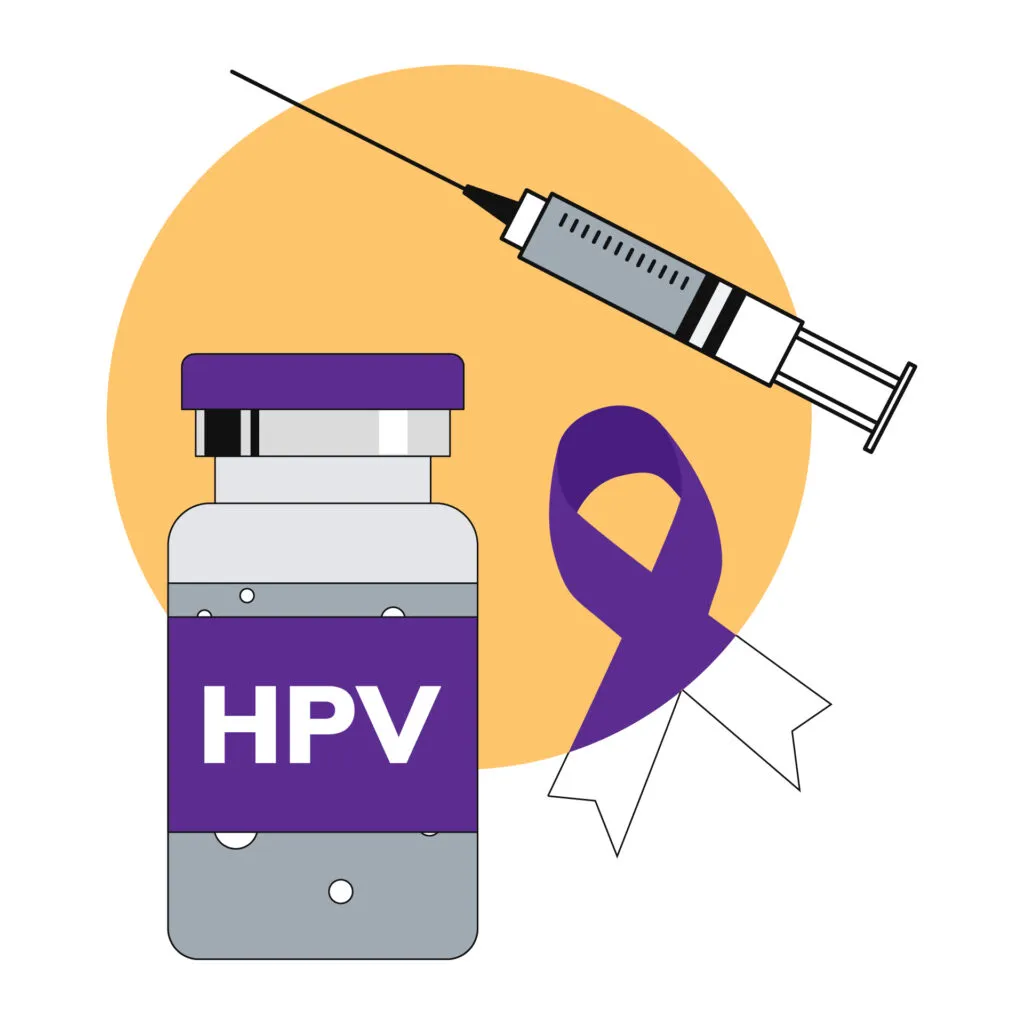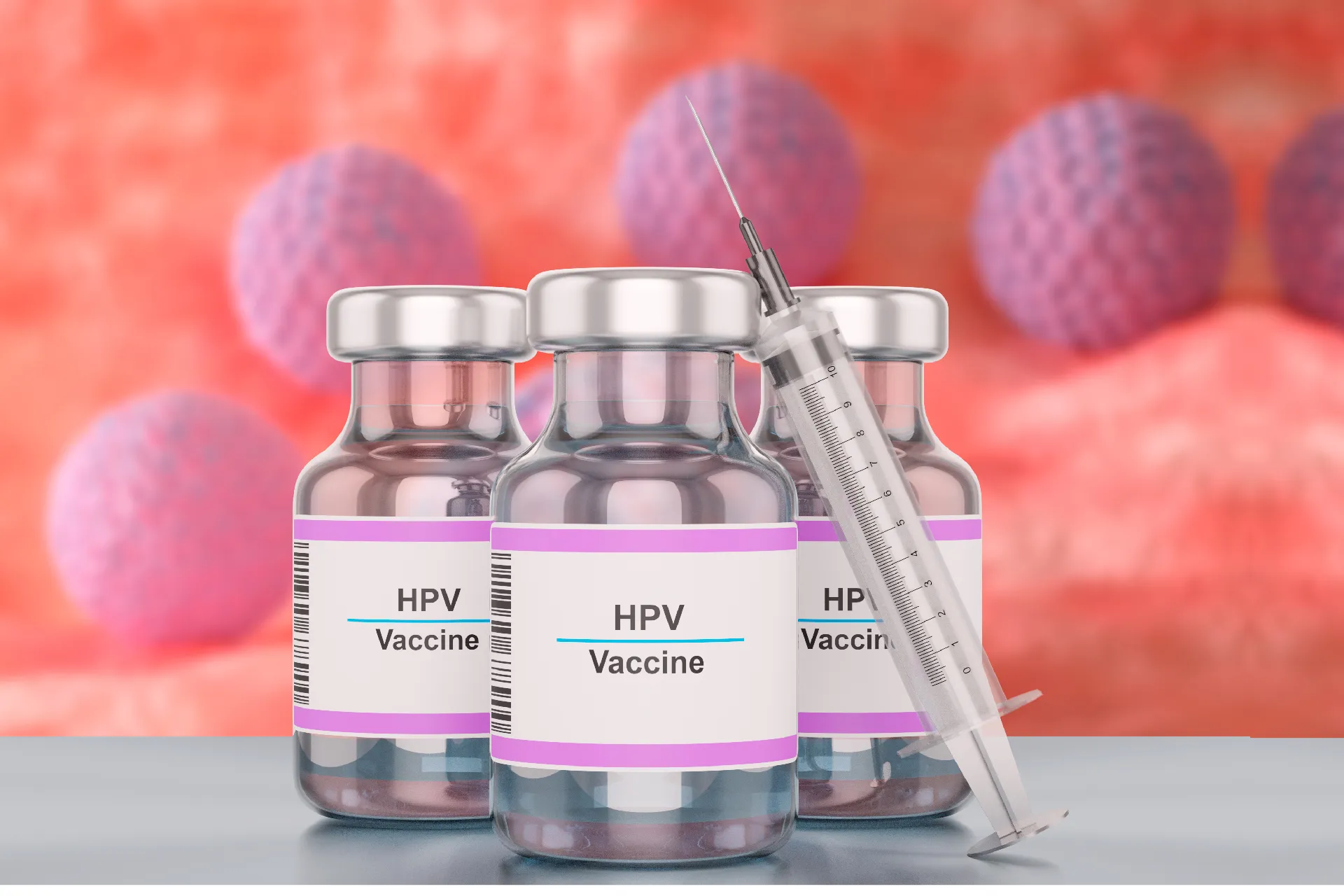General Health | 5 min read
HPV Vaccines: Uses, Doses, Vaccination Drive and Importance
Medically reviewed by
Table of Content
Synopsis
HPV can become a threat unless you take HPV vaccines on time. Learn about HPV vaccine uses and its role as a vaccine for cancer prevention. Also, find out about the HPV vaccination drive in India.
Key Takeaways
- HPV vaccines are essential to protect yourself from multiple types of cancers
- India has come up with its maiden HPV vaccine named Ceravac
- A national vaccination drive is scheduled to be held in mid-May 2023
HPV (human papillomaviruses) stands for more than 200 viruses that cause different types of infections in the human body, mainly in the genital region. Note that one in five types of HPV spreads through direct sexual contact. Critical diseases spread by HPV include genital warts and cancers in the penile, vaginal, anal, cervical and vulvar regions. As per new studies, it may also lead to cardiac diseases in women. Apart from these, there can be asymptomatic HPV infections where people become silent carriers and pass on the infection to others. That's why it is wise to prevent HPV infections, as it is impossible to cure the cancerous ones.
The HPV vaccines approved by the US Food and Drug Administration (FDA) include Gardasil 9, Gardasil and Cervarix. However, Gardasil 9 is the sole HPV vaccine that has been used in the US since 2016. In early 2023, India is coming with Ceravac, the nation's first indigenously developed HPV vaccine. With timely HPV vaccines, you can ward off the risk of getting infected by HPV. To know what is HPV vaccine used for, the benefits of the HPV vaccine for cancers, and more, read on.
What Are HPV Vaccines Uses?
With HPV vaccines, you can prevent the following types of diseases:
- Vaginal cancer
- Cervical cancer
- Oropharyngeal cancer
- Anal cancer
- Vulvar cancer
- Genital warts
- Head and neck cancers
- Mouth and throat cancers
Theoretically, the vaccination of boys protects girls from cervical cancer by decreasing the probability of transmission.
Additional Read: World Cancer DayWho Should Get HPV Vaccines?
As per CDC guidelines in the US, the following considerations are required before recommending HPV vaccines.
- For individuals aged between 9-26 years: Ideally, a child should get it between 9-12 years. As a whole, HPV vaccines are recommended to all adults aged up to 26 years who have not taken the full dose of vaccines earlier.
- Adults aged between 27-45 years: The FDA advises that clinicians ask individuals in this age range whether they are vaccinated. There is a high chance that people in this age range have already been exposed to the virus, so the vaccination may not work.
- For pregnant women: If a woman is expecting, it is wise to postpone the HPV vaccination. However, pregnancy testing is not essential before the vaccination as there are no recorded side effects of HPV vaccines on the fetus.
How Many Doses Of HPV Vaccines Are Needed?
As per the guidelines set by the US health authorities, the number of vaccine shots depends upon the age at which one takes the vaccine for the first time. Children aged between 9-15 can become fully immune with just two doses. However, individuals over the age of 15 or people with a weakened immune system may require three shots to be fully covered. Currently, research is on to understand whether a single dose of HPV vaccine can replace multiple doses.
How Do HPV Vaccines Prevent HPV?
Like other immunizations, HPV vaccines produce antibodies that bind to the HPV. As a result, HPV loses the ability to infect cells. However, remember that HPV vaccines can neither protect you from other sexually transmitted infections nor can they cure your existing HPV-caused disease.
Importance of HPV Vaccines
Combining HPV vaccination with a cervix screening is a wise option to watch out for cervical cancer. With timely HPV vaccinations, you can also lower the chance of getting cancers in different places apart from the cervix. Additionally, the protection you can get from HPV vaccines goes beyond individual space and helps lower the impact of HPV in the targeted population. Thus, non-vaccinated individuals also become safer, and this scenario is known as herd immunity. One such instance was recorded in Australia, where a high proportion of girls were given Gardasil shots, and it reduced the cases of genital warts among unvaccinated young females as well as young males [1].
With widespread vaccination drives, cases of cervical cancer across the world can almost be reduced by 90% [2] [3]. It can also limit the requirement for subsequent diagnostic procedures, including biopsy and treatment. Thus, HPV vaccines can help reduce healthcare costs and related stress [4].
Additional Read: Vulvar Cancer
India To Initiate Vaccination Drive For The Prevention Of Cervical Cancer In 2023
Finally, India is getting its own HPV vaccine. The Serum Institute of India (SII) has developed this indigenous vaccine and named it Ceravac. It can guard your body against the following strains of HPV – 6, 11, 16 and 18. As per reports, a national vaccination program will be launched by mid-May 2023 among adolescent girls aged between 9-14. Though the current HPV vaccine price is between Rs.2,500-3,300 per dose, SII CEO Adar Poonawalla declared that it would be priced between Rs.200-400 per dose during the drive.
Conclusion
Now that you know about the HPV vaccine for cancer prevention and its link to cervical cancer maintain a healthy lifestyle and watch out for cervical cancer symptoms. When the immunization drive begins in May 2023, ensure every adolescent girl in your family goes to the vaccination camps. In case of any health concerns in between, you can always consult a doctor on the Bajaj Finserv Health website or app. Stay one step ahead in healthcare to avoid additional expenses!
FAQs
Can I get an HPV vaccination at any age?
US health authorities recommend routine HPV vaccination between the age of 9-12 years. However, you can still take the vaccine before you complete 26 years.
What causes HPV in females and males?
The most common causes of HPV transmission are unprotected vaginal, anal or oral sex with an infected individual. However, it may also spread via intimate skin-to-skin contact [5].
References
- https://pubmed.ncbi.nlm.nih.gov/23506489/
- https://pubmed.ncbi.nlm.nih.gov/28965955/
- https://pubmed.ncbi.nlm.nih.gov/28886907/
- https://www.nejm.org/doi/10.1056/NEJMp058305?url_ver=Z39.88-2003&rfr_id=ori:rid:crossref.org&rfr_dat=cr_pub%20%200www.ncbi.nlm.nih.gov
- https://www.cdc.gov/std/hpv/stdfact-hpv.htm
Disclaimer
Please note that this article is solely meant for informational purposes and Bajaj Finserv Health Limited (“BFHL”) does not shoulder any responsibility of the views/advice/information expressed/given by the writer/reviewer/originator. This article should not be considered as a substitute for any medical advice, diagnosis or treatment. Always consult with your trusted physician/qualified healthcare professional to evaluate your medical condition. The above article has been reviewed by a qualified doctor and BFHL is not responsible for any damages for any information or services provided by any third party.





